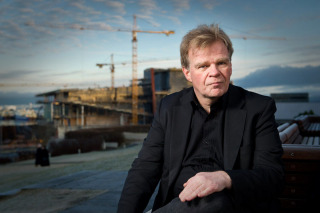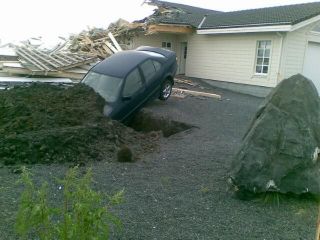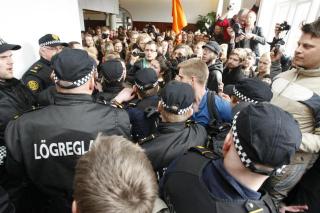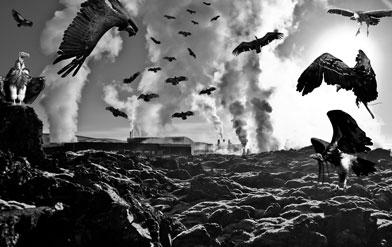Aug 27 2011
Disciples of Milton Friedman
The following chapter is from ‘Bankastræti Núll’, the latest book by poet and author Einar Már Guðmundsson, translated and originally published in The Reykjavík Grapevine, parallel to an introduction to Einar by Alda Kravec. The introduction says that the book “opens with the narrator’s lament: the current political situation has stifled his ability to write poems to his lover. Although he foresees a future where “reality wakes up” and poets can once again sing the praises of love and nature, the resounding sound of social injustice presently overwhelms him and beckons him to first engage in the struggle against the free reign of the stock exchange, privatisation and greed.”
It is written somewhere that all cats are grey in the dark, but here in Iceland, official reports are all black, no matter how bright it is outside. Alþingi’s Investigative Commission’s Report is black. The Central Bank’s Report on the status of household debt is black. And the government and International Monetary Fund’s Memorandum of Economic and Financial Policies is also black, dark as a coal mine, and sure enough, it was drafted in April, the cruellest month. It is a reminder of the misery that the IMF has presided over in countries all over the world, and directly refutes the notion that the IMF plans to apply different methods than those it has adhered to until now.
In Greece, the public has risen up against the Fund’s plans, but here the labour movement and employers get into bed with it and are almost more devout than the Pope in getting investors to come here with their baggage of offshore profits and dummy corporations. In one district, where neo-liberals have sold everything and there is nothing left to mortgage except the harbour, efforts are being made to set a precedent by selling natural resources through a shelf company just so politicians can save face after having handed over the entire district to their associates and relatives on a silver platter. Read More




 This article originally appeared in the June issue of the independent newsmagasine
This article originally appeared in the June issue of the independent newsmagasine